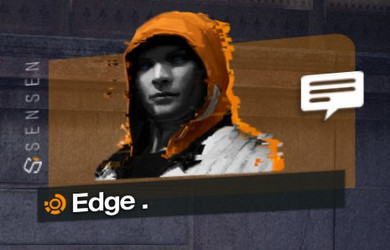The answer could be a short and sweet, “nothing” or a long and complex “everything”. One of the interesting facets of gaming that is focused on far too infrequently is that you control and act on raced characters in the game world. The main difference between watching a white man kill a black man in a movie compared to the same event in a video game is that you pulled the trigger (pressed the button) in the video game.

Does this act of pushing the button and being the white man in that scenario have implications? The example game I want to use in this scenario is Street Fighter II. This is a game that many people are familiar with and the characters are clearly tied to a race and/or region.

A little background on SF:II for this piece. Street Fighter II is a one on one fighting game featuring fighters from all over the world. Ryu is from Japan, Ken is from the USA, Guile a white man from the USA, Balrog is a black man from Las Vegas, USA, Zangief is a white man from the U.S.S.R, and there are more characters from more places…. This game is a one to one game where the user controls an avatar that is clearly representing an ethnicity and race while beating up another character of possibly a different race and nationality.

My thesis is this: (I use thesis loosely) Video games are an active medium where users have control over their avatar’s actions, due to the active nature of the medium interactions had with raced avatars can influence one’s personal views and experiences of that group. Basically, what I am saying is that if I am a white person and I control CJ from GTA: San Andreas for 60 hours, that interaction with CJ will influence my views of black people. There are a lot of factors at play, but imagine you are a suburban white kid who doesn’t have any black friends and has little exposure to black people. CJ and his friends/enemies in GTA are the first interactions with this group.

To take an even broader look, what does it mean when a white kid pulls the trigger on his XBOX 360 to kill a Middle Eastern man in Call of Duty?

When I mention these ideas and topics to people I almost immediately get dismissed and am accused of looking too much into things. Games don’t cause racism, they don’t cause violence, they don’t effect anything are what people say to me. Games evoke feelings, they stimulate users both visually, intellectually, and aurally. I think games have the power educate, create new ideas towards things, and reaffirm old notions you may already have.

In our defense of gaming, (i.e. gaming does not cause violence, etc.) we lose the ability to explore the medium further and deeper.
If i say a game helped helped me learn to read and the instructor I had in the game was Asian, people would be so happy. I had a diverse experience and gaming taught me something positive. What if I continue to say that “I think Asian people, especially women are bitches. My instructor was mean and I have never met any Asian people in real life.” Now everyone balks and says gaming doesn’t impact people like that. It’s a 2-way street. This is why I think race and culture and representation matter in games. (I have no issues with Asian Women….just to clarify).

My first exposure to somebody who was Indian is Dhalsim from Street Fighter II. What are the implications of that? His stage is covered in elephants. Dhalsim blows fire and can stretch his arm. He is a mythic figure who can float in the air. Dhalsim is basically a video game version of Johnny Quest’s Hadji. My entire exposure to beautiful diverse culture is reduced to stereotypes. On top of that, the interaction is violent. Street Fighter II is a fighting game. My first interaction with an Indian man is framed with violence. I am not saying this is good or bad, but I am saying that it has to mean something. What does it mean? Why don’t people look into it?
![]()
I am asking questions that I don’t have the answers to. I think they are questions that need to be explored.









